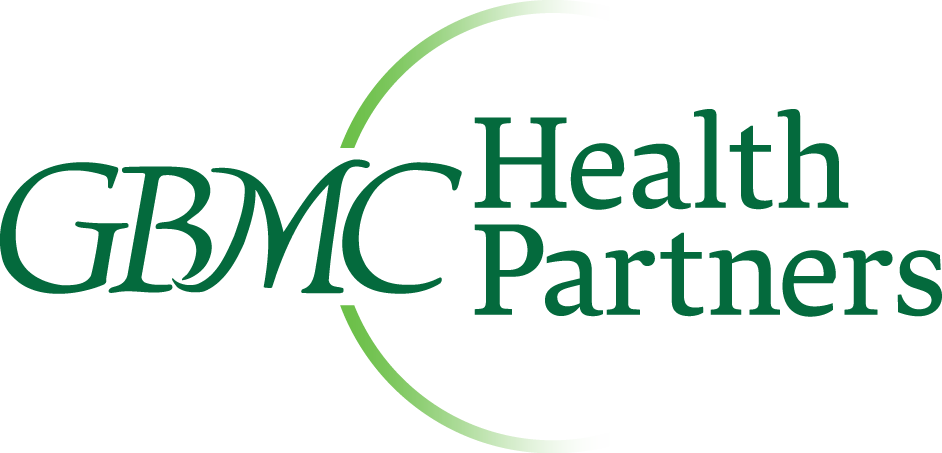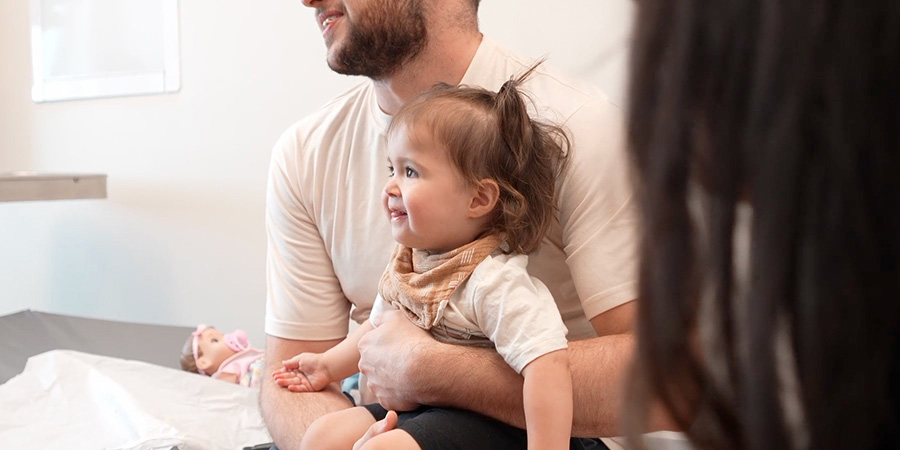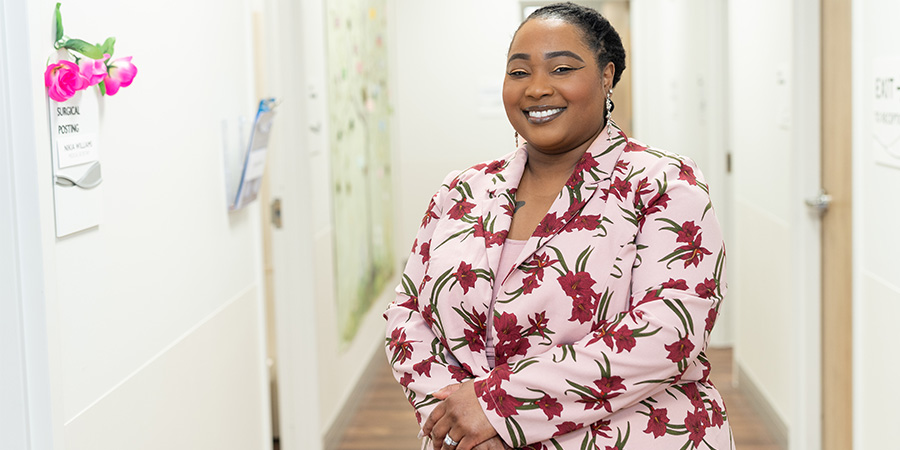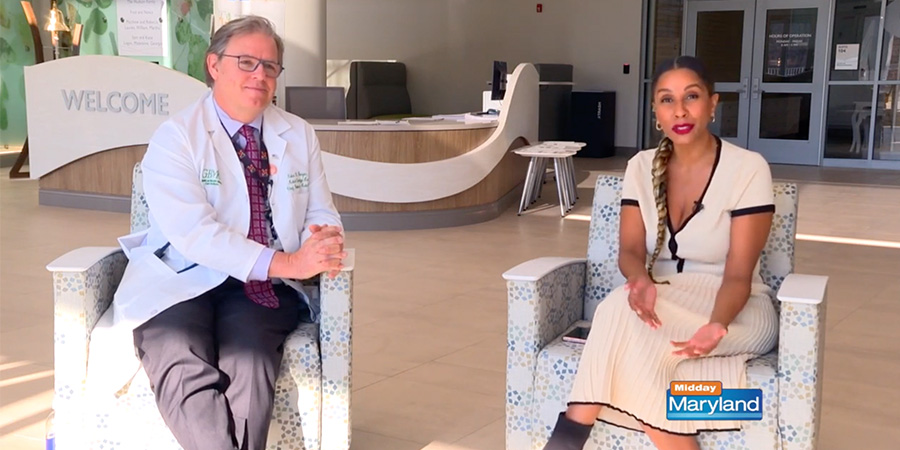Hereditary Cancer Genetics at the Harvey Institute for Human Genetics
Offering genetic counseling, risk assessment, and genetic testing for hereditary cancer conditions
At the Harvey Institute for Human Genetics, the hereditary cancer risk assessment process includes assessing the likelihood of a hereditary cancer condition, estimating cancer risk(s), and providing information about managing cancer risks. This information can also be very useful to the entire family, as other relatives may also be at increased risk for cancer.
Our Services
Hereditary cancer risk assessment:
- Comprehensive review of medical and family history
- Assessment of histories to determine likelihood of an underlying hereditary cancer condition
Genetic counseling:
- Education about hereditary cancer conditions and appropriate genetic testing
- Discussion of the implications of a diagnosis, including the medical, psychological, and familial implications
- Discussion and education about appropriate cancer screening and risk reduction measures
Genetic testing:
- Coordination of appropriate genetic testing
- Interpretation of genetic test results
Ongoing support and management:
- Coordinate referrals to appropriate specialists for screening and ongoing management
- Provide referrals to support groups or organizations
- Provide information about potential research studies
- Act as an ongoing resource for support and information

Because of GBMC, I'm Cancer Free
In April 2013, I was diagnosed with Lynch syndrome, a genetic predisposition to a variety of cancers, with colon and endometrial being the most prevalent, and a lifetime risk between 60-80 percent.
Frequently Asked Questions
Who Can Benefit from a Hereditary Cancer Risk Assessment?
Anyone with a personal and/or family history of:
- More than one diagnosis of cancer in the same individual
- Breast cancer diagnosed before age 50
- Bilateral breast cancer (cancer in both breasts)
- Breast cancer at any age with one of the following:
- Ashkenazi Jewish ancestry
- At least one other family member with breast cancer diagnosed before age 50
- Two or more other family members (from the same side of the family) with breast cancer at any age
- At least one other family member with ovarian, fallopian tube, or peritoneal cancer diagnosed at any age
- Two or more other family members (from the same side of the family) with breast and/or pancreatic cancer
- A personal or family history of thyroid cancer, sarcoma, adrenocortical cancer, endometrial cancer, pancreatic cancer, brain tumors, gastric (i.e. stomach) cancer, early onset leukemia
- Breast cancer in a man
- Ovarian, fallopian tube, or peritoneal cancer at any age
- Colon or rectal cancer diagnosed before age 50
- Colon or rectal cancer diagnosed at any age with one of the following:
- At least one other family member with colon or rectal cancer diagnosed before age 50
- At least one other family member with endometrial cancer before age 50
- Two or more other family members (from the same side of the family) with colon, rectal, endometrial, stomach, small bowel, renal-pelvis, or urethral cancer at any age
- Greater than 10 colon or rectal polyps
- Endometrial cancer diagnosed before age 50
- Renal cancer before age 50
- Renal cancer at any age with at least one other family member with renal cancer
- Two or more family members (from the same side of the family) with pancreatic cancer
- Multiple family members (from the same side of the family) with cancer, especially if diagnosed before age 50
- A personal or family history of a known hereditary cancer syndrome or altered cancer-predisposing gene
How do I schedule an appointment?
We ask all our patients to complete a pre-visit questionnaire, which will ask questions about your medical and family history. Once we receive the form, we will contact you to schedule an appointment.
Where do I go for my visit?
Our suite number is 2326. We are located on the 2nd floor of the main hospital in Zone C, near Labor and Delivery. Valet parking is available outside the Obstetrics entrance or the closest parking garage is Lily Park. We recommend at least 15 minutes for parking and walking to our office.
What information do I need for my appointment?
We ask all our patients to complete a pre-visit questionnaire, which will ask questions about your medical and family history. By completing this questionnaire before your appointment, it allows you to speak with family members to obtain accurate cancer family history. In addition, if another family has already had genetic testing, it will be helpful to have copies of this family member's genetic test results prior to your appointment.
What will happen during my visit?
We will review your medical and family history to look for any possible features of certain hereditary cancer conditions. Based on this information, we will assess the likelihood of an underlying hereditary cancer condition and provide you with a personal risk assessment. We will then discuss any appropriate genetic testing along with the benefits, risks, and limitations that come with it. In addition, we may discuss cancer screening recommendations and ways or options to decrease cancer risk. If genetic testing is pursued, we will facilitate ordering the appropriate testing which can usually be coordinated the same day as your initial visit.
How long does a typical visit last?
The average initial visit lasts about 30-45 minutes.
Can I have genetic testing without genetic counseling?
We do not offer genetic testing without genetic counseling. Reviewing your medical and family history is an important part of the risk assessment and testing process and is essential to ensuring the most appropriate test is ordered. In addition, it is important for us to discuss the benefits, risks, and limitations of genetic testing for accurate result interpretation and medical management.
How long does it take to get genetic test results back?
This depends on the specific test being ordered, but we get most results back within 3 weeks.
Will my insurance cover the cost of genetic testing?
Fees for genetic testing are separate from the office visit fees. In general, insurance coverage for genetic testing is very good. However, coverage for genetic testing is based on your designated insurance health plan benefits and policies. Once we determine what type of testing would be appropriate, our genetic counselor will be able to provide you with additional information regarding insurance coverage at the time of your visit.
Will my insurance cover the cost of the hereditary cancer risk assessment?
As a medical practice of the Greater Baltimore Medical Center, we accept all health insurances with which GBMC maintains contracts and complies with all GBMC financial policies. Our administrative staff will be happy to assist you in determining if your health insurance maintains a contract with GBMC.
Most health insurances cover outpatient genetics consultations as well as many forms of genetic testing. If you are required to pay a co-payment, this will be at the specialist rate. If your insurance requires a referral, it is your responsibility to obtain this prior to your appointment. Inpatient genetics consultations are covered under the terms of the patient's hospitalization insurance.
Can my employer or health insurance use my genetic test results against me?
In 2008 a federal law known as the Genetic Information Nondiscrimination Act (GINA) was passed to prohibit discrimination based on genetic information with respect to health insurance and employment.
What if I have other questions?
Our administrative staff or our genetic counselor would be happy to help answer any other questions that you might have. Please contact us at 443-849-3131.
Related Services
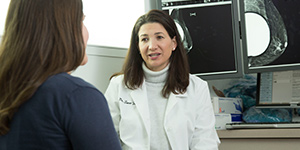
Breast Care - Sandra & Malcolm Berman Comprehensive Breast Center at GBMC
6715 N. Charles St Suite 250 - Towson, MD 21204
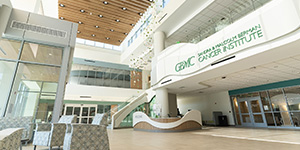
Medical Oncology at GBMC
6715 N. Charles St Sandra R. Berman Pavilion - Suite 125 - Towson, MD 21204

Cancer Services at GBMC - Sandra and Malcolm Berman Cancer Institute
6715 N. Charles St Sandra R. Berman Pavilion - Towson, MD 21204

Genetics - The Harvey Institute for Human Genetics at GBMC
6701 N. Charles St. Main Hospital, Suite 2326 - Towson, MD 21204




